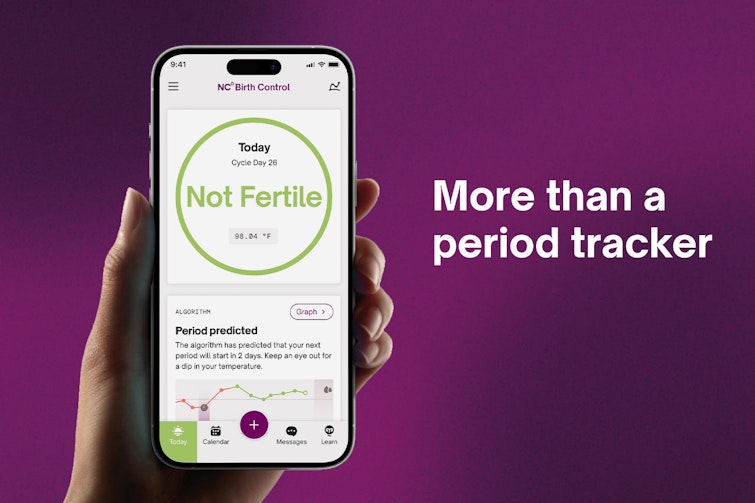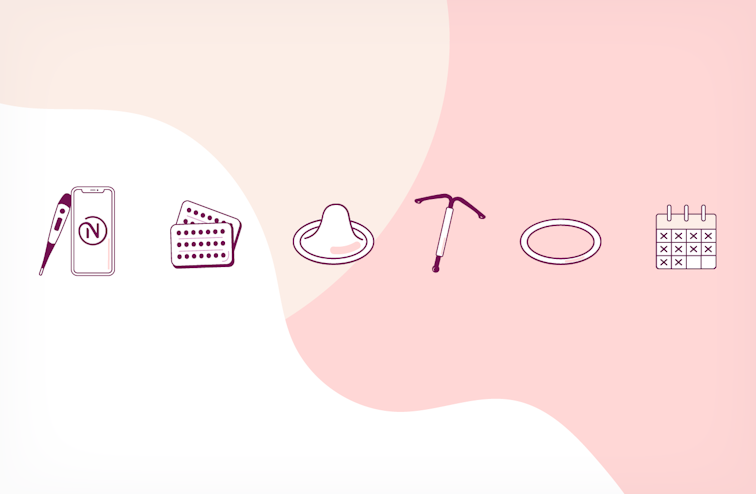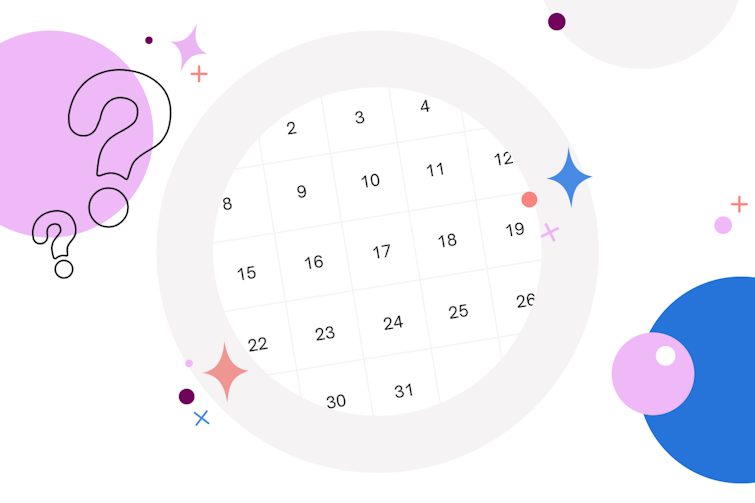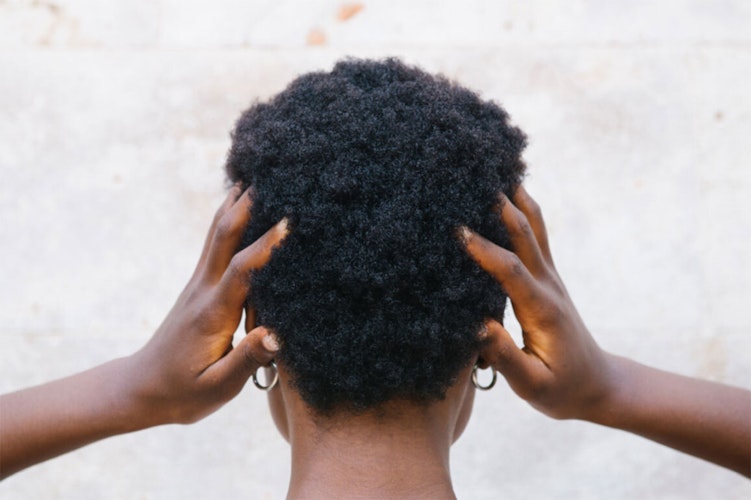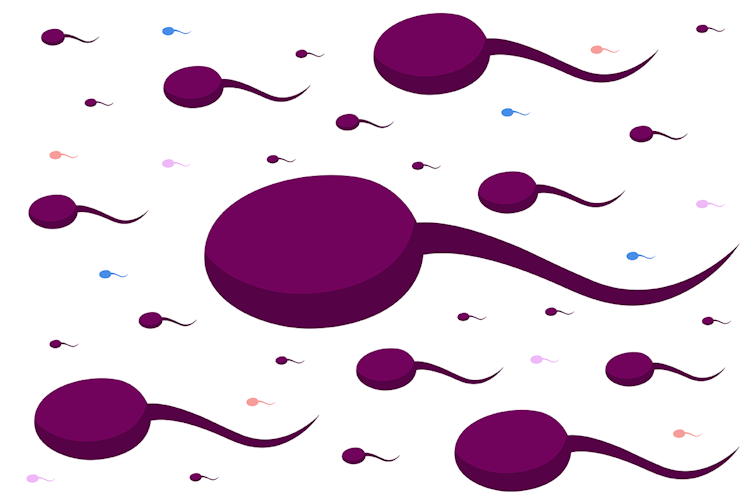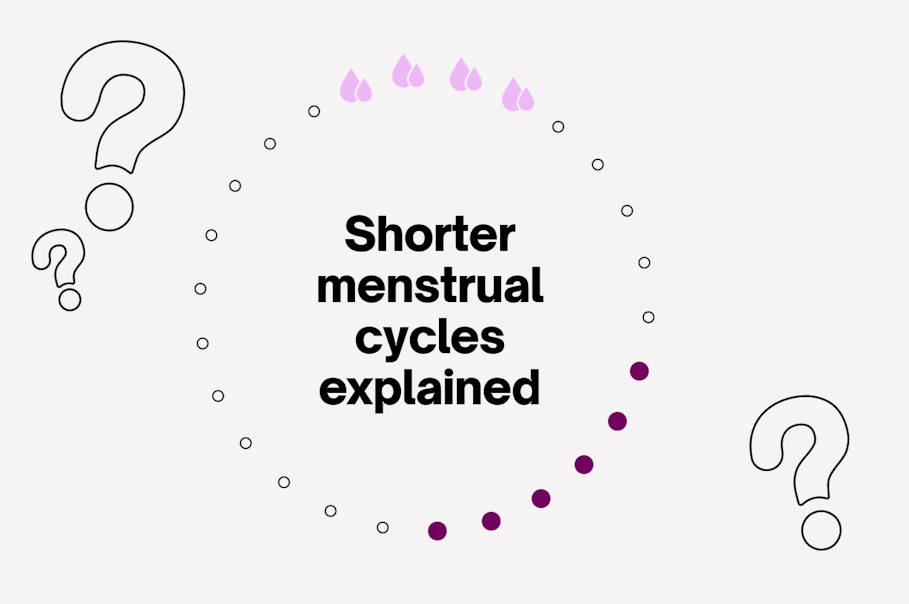
Why is my menstrual cycle getting shorter?
We can experience a shorter menstrual cycle for many reasons, like recent use of birth control, pregnancy, perimenopause, and more. Tracking your cycle can help you notice if and when your cycle is getting shorter. Cycle regularity can be a useful indicator of our overall health, so it’s good to be aware of what may cause things to change. In this article, we’ll explore some of the reasons for a shorter menstrual cycle, the causes for an irregular period, and when to reach out to a healthcare provider.
How long is a menstrual cycle?
Most of us have probably heard at some point that the standard cycle is 28 days long. However, it turns out that this is not entirely true – most people don’t have a 28-day cycle.Research已经发现大多数somew周期here between 21 and 35 days long, and the average menstrual cycle length is 29 days. Only about 1 in 8 have a cycle that’s 28 days long. Cycles that are shorter than 24 days are considered short cycles.
Yourmenstrual cyclestarts on the first day of your period and continues until your next period starts. Each cycle can be divided into two main phases – the follicular phase and the luteal phase – withovulationhappening roughly in the middle.
Usually, the follicular phase is the longest phase – on average it lasts about 17 days. This is also the phase that tends to vary in length, since ovulation doesn’t always happen on the same day in each cycle. The luteal phase on the other hand doesn’t vary much from cycle to cycle, and the average length is about 12 days.
As always, when talking about our bodies, it’s also worth keeping in mind that we’re all different. Every person has their own unique cycle pattern, so what’s normal for you is not necessarily normal for someone else.
Why is my cycle getting shorter?
So, what causes the menstrual cycle to get shorter? Interestingly, our cycles tend to become shorter as we get older. More research is needed to fully understand the mechanisms behind this, but it’s likely linked to how ourhormones change with age.
But this doesn’t just happen when we go intoperimenopause(the stage before menopause that usually starts in our forties) –our study of more than 600,000 cyclesactually found that cycles on average, become about five hours shorter per year between the age of 25 and 45. However, since that change is so small, most of us won’t notice it for a while – it would take about five years for the cycle to become one whole day shorter on average. It’s also worth noting again that menstrual cycles vary in length so it’s completely normal that some cycles are a bit shorter and some are longer.
相同的study also found that thefollicular phase getsshorter over time whilethe luteal phaselength stays the same length. This means that cycles often become shorter as we get older because ovulation happens earlier. The follicular phase becoming shorter with age has been found inother researchas well.
Another factor that can impact cycle length is when ovulation does not happen at all. A cycle without ovulation is known as ananovulatory cycle, and these aremore likelyto make your cycle vary in length. Most of us will experience an anovulatory cycle at some point, but you might not realize it unless you are tracking your cycle.
What is an irregular period?
A cycle is generally considered regular if it’s between 21-35 days and if it varies by less than ±4 days from cycle to cycle – meaning that there is a lot of possible variation both between individuals and from one cycle to the next for the same person.
Irregular cycles fall outside of this range – menstrual cycles that are shorter than 21 days and longer than 35 days, as well as cycles that vary by more than ±4 days, are considered irregular.
There are also cycle irregularities that are not related to age. It’s completely normal for menstrual cycles to vary in length to some degree, and you will most likely not get your period after the same number of days in each cycle every time.
What causes shorter and irregular periods?
When we first get our period as teenagers, our cycles tend to be irregular and it is not uncommon for them to be long as well. This evens out as we finish puberty. In our twenties and early thirties, we tend to have more regular cycles (some people will, however, continue to have cycle irregularities throughout their fertile years). When we approach our forties, it’s common for the menstrual cycle to become more irregular again as we enter into perimenopause. You might also notice your periods getting shorter and lighter.
There are lots of different factors that can lead to irregularities in the menstrual cycle, so let’s take a look at a few common ones:
- Pregnancy – if you’ve recently been pregnant, it can take a while for thecycle to returnand it’s common to have irregular cycles in the beginning
- Breastfeeding – the hormone prolactin that enables milk production can affect the menstrual cycle
- Certain medications – make sure to ask your doctor if you have questions about medicine that you’re taking or planning to take
- Some cycle conditions, likePCOSorendometriosis
- Recent use ofhormonal birth control
- Stress
- Over-exercising
- Extreme changes in weight
When should I reach out to a healthcare provider?
Each cycle is unique and while they won’t all look the same, many of us recognize patterns within our own cycles, so we tend to notice if something changes drastically. Especially if we usually have a regular cycle, we’ll likely notice a sudden change in menstrual cycle length.
If you feel worried about your own cycle, it’s a good idea to reach out to a healthcare provider who can help you determine what’s going on. You should also contact your doctor if:
- You have irregular cycles and feel that it’s bothering you
- You usually have regular cycles that suddenly become irregular
- Your periods last longer than seven days or they are very heavy
- You have irregular cycles and you are struggling to get pregnant
- You have irregular cycles and other symptoms like weight gain, tiredness and hair growth
- You experience unusual bleeding during your cycle
How to keep track of your cycle
It can be helpful to keep track of your cycle, both if you’re interested in learning more about your own cycle patterns and to make it easier to notice if something is out of the ordinary. Natural Cycles is powered by a unique algorithm that uses body temperature, periods, and optional LH tests to analyze your individual cycle. You can also track your period flow and many other cycle symptoms, like pain, skin changes, and more.
Natural Cycles is so much more than a period tracker – the app has three modes so that you can use it at any point in your fertility journey. It is the first and only app to be FDA Cleared as a contraceptive so that you can prevent pregnancy withNC° Birth Control. You can also useNC° Plan Pregnancy帮助你找到你最fertile dayswhen trying to conceive, andNC° Follow Pregnancyto keep track of your baby and body during pregnancy. Take our quiz to find out if Natural Cycles is right for you!
Did you enjoy reading this article?

